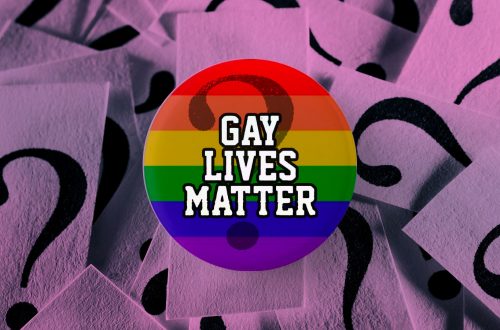Even by Spiked standards, this is a bizarre and annoying article. Brendan O’Neill begins by suggesting that a disproportionate amount of attention is being paid to the issue of gay marriage. I suppose there is something in that – as a topic which embraces sexuality and religion, which is easy to understand and form an opinion about, it’s going to generate more opinion pieces and discussion than, say, changes to trade union legislation.
O’Neill says: ‘historically, gays haven’t been interested in getting married’. How exactly does he know? I would imagine that, until comparatively recently, issues such as the complete criminalisation of homosexuality were more pressing, certainly. But, even if true, why should what has been the case in the past be invoked as evidence not to press ahead with legislation now?
He goes on to say that:
Self-selected gay spokespeople present this effort as the logical conclusion to their 60-odd years of campaigning for equality, overlooking the fact that a great many gay activists once saw marriage and the family as problems, and demanded recognition of their right to live outside of those institutions.
I believe this is true, but it’s like arguing that the fact that some feminists are strict separatists invalidates the views of other feminists who would like to see equal parental rights for both sexes. The anti-marriage activists would have been just as ‘self-selected’ as people like Peter Tatchell.
O’Neill complains that support for gay marriage has become – a shibboleth, an issue which allows people to display their bien pensant credentials, and gives the Conservatives a chance to prove they aren’t nasty after all. Those views in themselves are perhaps not so contentious – and you could in fact agree with them while supporting gay marriage at the same time. It then gets worse:
But even in its own terms, gay marriage is a bad idea, for many reasons. Primarily because, while it is presented to us as a wonderfully generous act of cultural elevation (of gay couples), it is more importantly a thoughtless act of cultural devaluation (of traditional marriage). An institution entered into by millions of people for quite specific reasons – often, though not always, for the purpose of procreation – is being casually demoted … Now, perhaps you think the institution of marriage should be devalued, that it is stuffy and conservative and in need of an overhaul. Fine. Then argue for that, openly and honestly. But no one benefits from the charade of gay marriage … It doesn’t benefit gay couples, whose ‘marriage’ will have little historic depth or meaning, and it doesn’t benefit currently married couples, some of whom may feel a corrosion of their identity.
This is insulting, contrarian rubbish. O’Neill doesn’t seem to have any religious reservations about gay marriage, which I can at least understand even if I don’t share them. By using the word ‘charade’ (which I’m sure many religious figures with qualms would never dream of using) he recalls the wording of Section 28, and its reference to a ‘pretended family relationship’. He implies that those who support gay marriage really want to undermine marriage but are not being open and honest about their real intentions. But this is ridiculous. People support gay marriage because they value both marriage and equality.
